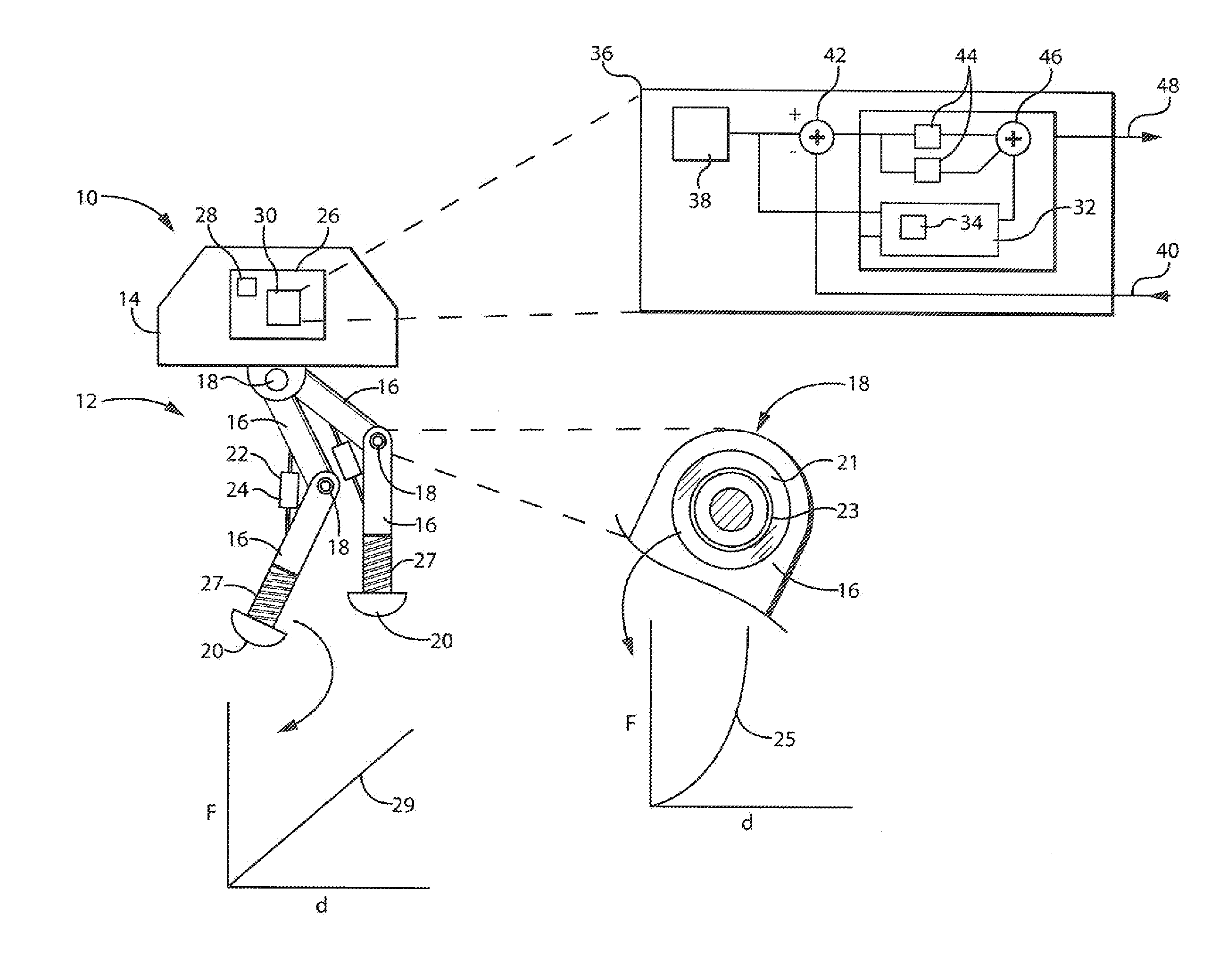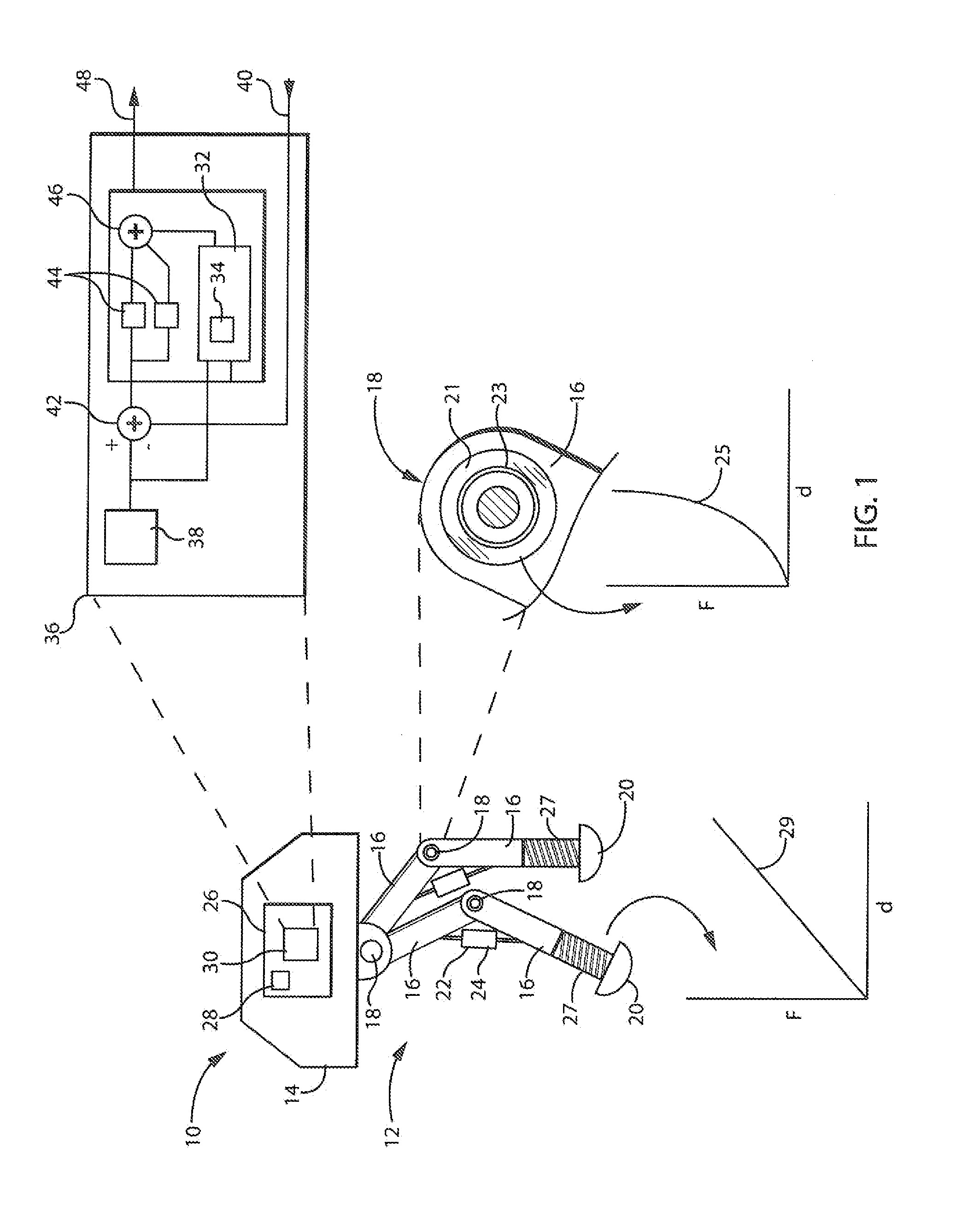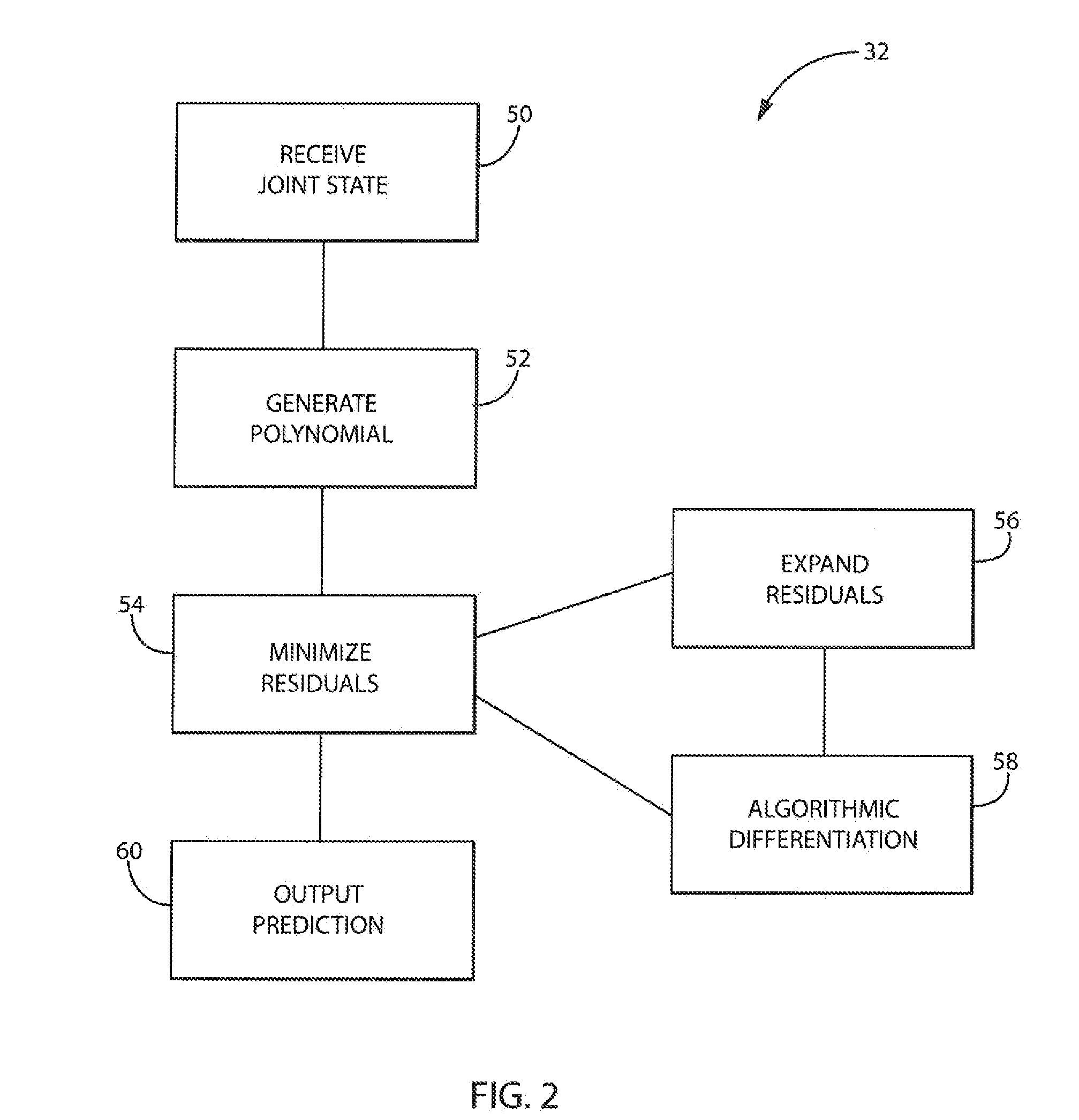Dynamic Predictor for Articulated Mechanisms
a technology of dynamic predictor and articulated mechanism, which is applied in the field of dynamic predictor, can solve problems such as problems such as problems such as problem solving of differential equations by term expansion, and achieve the effect of improving the control of articulated mechanism
- Summary
- Abstract
- Description
- Claims
- Application Information
AI Technical Summary
Benefits of technology
Problems solved by technology
Method used
Image
Examples
Embodiment Construction
[0031]Referring now to FIG. 1, an articulated controlled dynamical mechanism such as a walking machine 10 may include articulated legs 12 positioned to support a main machine body 14. Each of the articulated legs 12 may include links 16 being substantially rigid bars connected by joints 18. The legs 12 may have an end effector 20, for example, providing for ground-contacting feet or the like.
[0032]Each of the joints 18 provides for relative movement between the associated links 16 using mechanisms including but not limited to a slide or rotary coupling. Each of the joints 18 may communicate with an actuator 22, such as a hydraulic cylinder or motor for moving the joint 18, and a sensor 24, such as an encoder, linear variable transformer (LVT), tachometer, or the like (shown incorporated into the actuator 22), for reading out the position and velocity of the joint 18 when moved.
[0033]Electrical signals to the actuators 22 and from the sensors 24 may be communicated to an electronic c...
PUM
 Login to View More
Login to View More Abstract
Description
Claims
Application Information
 Login to View More
Login to View More - R&D
- Intellectual Property
- Life Sciences
- Materials
- Tech Scout
- Unparalleled Data Quality
- Higher Quality Content
- 60% Fewer Hallucinations
Browse by: Latest US Patents, China's latest patents, Technical Efficacy Thesaurus, Application Domain, Technology Topic, Popular Technical Reports.
© 2025 PatSnap. All rights reserved.Legal|Privacy policy|Modern Slavery Act Transparency Statement|Sitemap|About US| Contact US: help@patsnap.com



